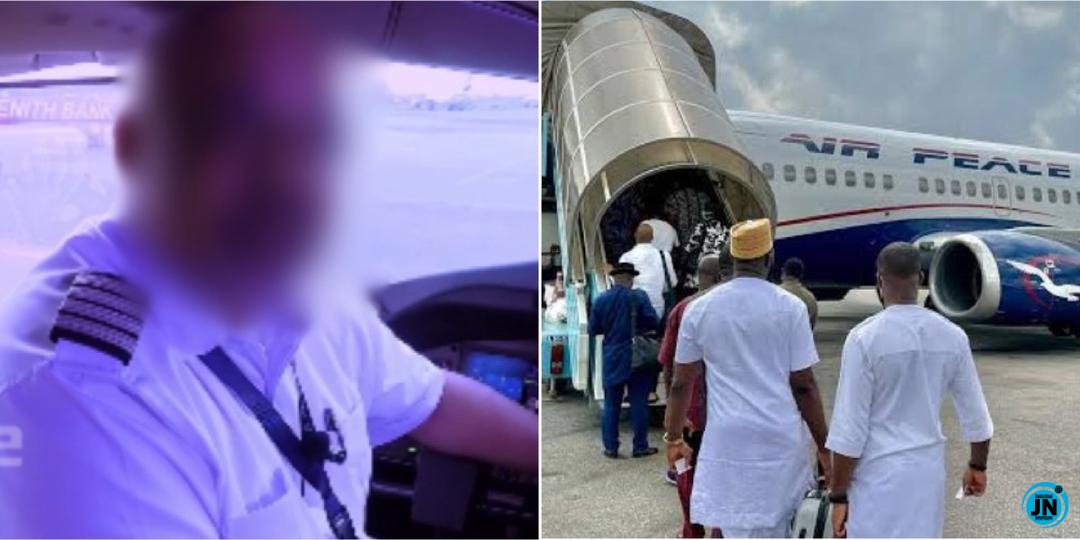
The Nigerian Safety Investigation Bureau (NSIB) has revealed shocking details about the July 13, 2025, incident involving an Air Peace Boeing 737 at the Port Harcourt International Airport, where the flight crew — both the pilot and co-pilot — tested positive for alcohol and drugs after the aircraft veered off Runway 21 with 103 passengers on board.
The NSIB preliminary findings indicated that the aircraft had performed an unstabilised final approach, leading to a late touchdown. According to the report, the plane landed approximately 2,264 metres from the runway threshold, a distance well beyond the recommended touchdown zone. The jet eventually came to a halt 209 metres into the clearway. This raised serious safety concerns about both the landing procedure and the decision-making process of the crew during the critical phase of flight.
Fortunately, no lives were lost in the near-disastrous incident, and all 103 passengers along with crew members safely disembarked without any injuries. However, the close call has triggered major concerns over flight safety standards in Nigeria and the professionalism of airline crew members.
In its preliminary report, the bureau confirmed that toxicological screening carried out on the crew immediately after the incident at Rivers State Hospital, Port Harcourt, showed traces of alcohol and drugs. The Captain and First Officer both tested positive for Ethyl Glucuronide, a biomarker for recent alcohol consumption. Additionally, one of the cabin crew members tested positive for THC, the active psychoactive component in cannabis. This raised alarms over crew discipline and the adequacy of pre-flight monitoring systems.
The NSIB stated in its official communication: “Initial toxicological tests conducted on the flight crew revealed positive results for certain substances, including indicators of alcohol consumption. A cabin crew member also tested positive for THC, the psychoactive component in cannabis. These results are being reviewed under the human performance and safety management components of the investigation.”
As a direct response to the findings, the NSIB has issued immediate safety recommendations to Air Peace Limited. These include the urgent need to strengthen crew resource management training, particularly in areas involving unstabilised approaches and go-around decisions. The bureau also advised the airline to reinforce and strictly monitor internal procedures for crew fitness-for-duty before any flight dispatch, to ensure no pilot or crew member is impaired when operating an aircraft.
“Toxicological test was conducted on the flight crew at Rivers State Hospital Management, Department of Medical Laboratory, Port Harcourt, on 13th July 2025, and they tested positive for some substances. Toxicological screening conducted post-incident revealed that Captain and First Officer tested positive for Ethyl Glucuronide, indicating recent alcohol consumption,” the report further highlighted.
The revelation has since sparked outrage among Nigerians, especially across social media, with many calling for stricter aviation policies, mandatory random drug and alcohol screening for pilots, and heavier penalties for any airline crew members caught violating safety protocols. Aviation experts have also urged regulators to step up oversight, warning that negligence in this regard could have catastrophic consequences in the future.
The investigation remains ongoing as the NSIB continues to analyse the incident under the framework of human performance, crew behaviour, and safety management systems. A final report is expected in the coming months, which will detail long-term safety measures to prevent such an incident from recurring in Nigeria’s aviation sector.